Low-carb diets and eating plans are very popular. More and more people are opting for cleaner eating, and some believe that being grain-free is even better for you. But, if you do opt to avoid grains and follow a low-carb diet, you should know about these 10 important rules that will help guide you to healthy eating.
1. Eat only uncured and unprocessed meats without sodium nitrite.
Certain processed meats, like sausage, pepperoni, bacon, and salami may contain sodium nitrite, a chemical that controls the colour of the meat. When sodium nitrite is cooked, it will react with the amino acids in the meat and create nitrosamines that have been linked to gastrointestinal cancers. Choose meats that do not contain sodium nitrite and have only been processed naturally.
2. Reach for organic dairy.
Because many commercial dairies will milk their cows while they are pregnant, the milk will contain more estrogen. In order to avoid ingesting additional estrogen, as well as avoid exposure to bovine growth hormone, it is important to choose organic dairy products (milk, sour cream, cheese, yoghurt, and butter) whenever possible, or ensure that the dairy practices a more limited milking period.
3. Choose fermented foods.
When you are not eating fibrous grains, coconut, or dairy yoghurt, foods like kefir, fermented radishes, fermented cucumbers, and fermented onions are an excellent way to get healthy amounts of probiotics. This helps to promote healthy bowels. You can enjoy fermented foods alone, or add them to salads. They are also delicious when dipped into hummus or salsa.
4. Don’t limit salt intake.
Although some recommendations say to limit your salt intake to less than 2,300mg per day, the average American eats about 3,400mg per day and this is usually fine. For most people who are eating grain-free, it is important to get mineral-rich forms of salt, like sea salt, instead of restricting the intake of salt. Including healthy potassium-rich foods like veggies, avocados, and coconut is important, too. Keep in mind that there can be serious problems with too much salt, so be sure that you are monitoring your salt intake somewhat. Those who eat 6,000 to 10,000mg per day may experience cardiovascular problems.
5. Use the right sweeteners.
It’s pretty easy to make baked goods with grain-free alternatives. But, it is important to know what alternative sweeteners you are using. Dr. Davis suggests using liquid or powdered stevia, stevia with inulin (but not maltodextrin), monk fruit, erythritol, and xylitol. Some people do experience sugar cravings when they eat these alternative sweeteners, but they are worth trying. Make sure that you are carefully avoiding fructose-filled sweeteners, like grain-sourced high fructose corn syrup, sucrose (50% fructose), and agave nectar (90% fructose). Honey and maple syrup are popular options, but use these sparingly because they are high in natural fructose.
6. Eat organic vegetables and fruits.
Organic fruits and vegetables should always be your first choice. This is most critical when you are eating the entire fruit, skin and all, such as with blueberries and broccoli. When it comes to foods that you don’t eat the exterior, like bananas and avocados, it is less important but pesticides can still get through the skin so it still would be a good idea to buy organic. If you cannot obtain organic versions, then be sure that you are thoroughly washing your fruits and veggies before eating.
7. Reduce exposure to Bisphenol A (BPA).
BPA is a compound that is found in polycarbonate plastics (these are the clear plastic containers with recycling code #7). BPA is also found in the resin lining of cans. This compound can have disruptive effects on your endocrine system, and may lead to heart failure, diabetes, thyroid dysfunction, and weight gain. Some brands have switched entirely to non-BPA cans, but you will want to read the labels carefully.
8. Steer clear of soft drinks and carbonated beverages.
Soda and carbonated beverages contain carbonic acid, which can erode bone health as it is neutralized by extracting calcium salts from bones. Instead of soda, opt for water with lemon, lime, cucumber, kiwi, mint leaves, or oranges. Tea is another great option, as well as unsweetened almond milk, unsweetened coconut milk, coconut water, hemp milk, or black coffee.
9. Do not eat hydrogenated fats.
Hydrogenated fats, or trans fats, are found in most processed foods. These types of fats are the unhealthy kind—the kind that contribute to heart disease, hypertension, and diabetes. Margarine is the worst offender, because it is made with vegetable oils that are hydrogenated so that the result will remain a solid stick or fit into a tub. Avoid all processed foods that contain trans fats or hydrogenated oils, as well as the sugar and grains that they contain.
10. Reduce exposure to high-temperature cooking.
Cooking at temperatures higher than 450 degrees Fahrenheit can cause reactions in food called glycation or lipidoxidation, which occurs when carbohydrates react with proteins and fats in the foods. This can make your food toxic, and contribute to the development of hypertension, cataracts, arthritis, heart disease, and cancer. These reactions can happen during deep frying, broiling or grilling.
You can enjoy a healthy low-carb diet, if you follow these important guidelines about how to choose and prepare your food, and when you know what to avoid.
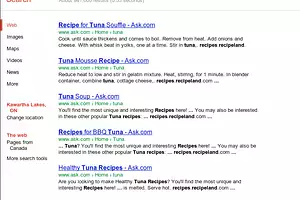


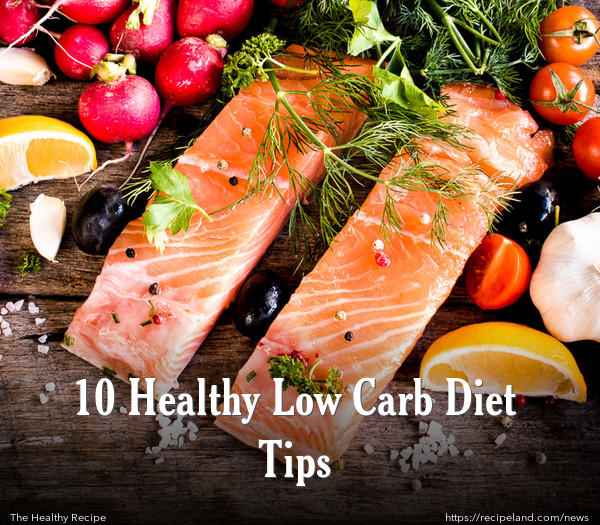

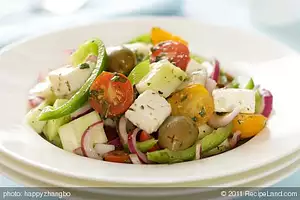
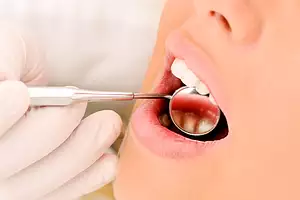

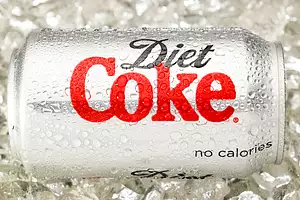

Comments
What do think of the "South Beach Diet"
Thanks for your food tip articles.
Jim C.
Please reply by e-mail..Thanks again.
[email protected]
Thank you for sharing these tips. I was in search of such simple tips. This is going to help in guiding me on a healthy diet. The tips mentioned above is really going to be very helpful.